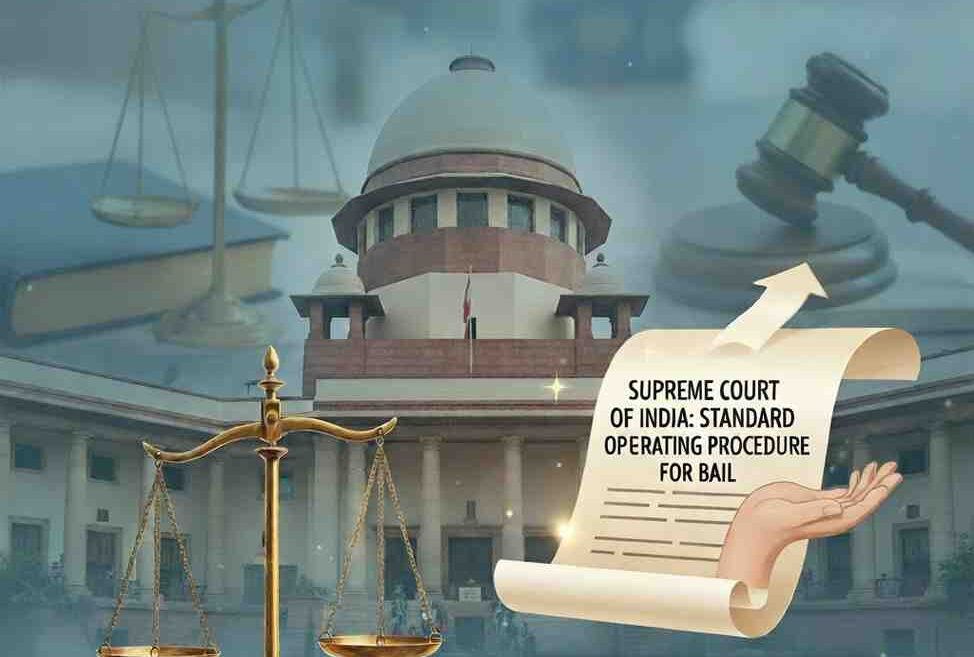The Supreme Court of India introduces a new SOP to assist undertrials who cannot afford bail. District legal services authorities will provide the surety amount, ensuring fair access to justice for the economically disadvantaged.
The Supreme Court of India has recently taken a significant step to ensure access to justice for economically disadvantaged undertrial prisoners. Recognizing that financial hardship should not be a barrier to personal liberty, the Court has introduced a standard operating procedure (SOP) to assist undertrials who cannot afford bail sureties. This move underscores the judiciary’s commitment to equitable treatment under the law and the protection of fundamental rights.
Under the new SOP, the government will provide financial support for the bail surety amount through District Legal Services Authorities (DLSAs). This initiative ensures that poverty does not prevent undertrial prisoners from securing bail and enjoying their constitutional rights while awaiting trial. Traditionally, many undertrials in India remain incarcerated not because of the severity of their alleged crime but simply because they cannot afford the financial surety required for release. By introducing this SOP, the Supreme Court aims to address this systemic inequality.
Key Features of the SOP
- Provision of Bail Sureties: The SOP allows DLSAs to step in and provide the necessary financial surety for undertrial prisoners who are unable to pay. This ensures that undertrials are not forced to languish in jail due to economic constraints.
- Targeting Economically Disadvantaged Undertrials: The SOP specifically focuses on individuals who genuinely cannot afford the bail amount. It is designed to support those most vulnerable in the criminal justice system, thereby promoting fairness and social justice.
- Enhancing Access to Justice: By removing financial barriers to bail, the SOP reinforces the principle that justice should not be contingent upon wealth. It upholds the fundamental right to personal liberty under Article 21 of the Constitution of India.
- Implementation and Oversight: District Legal Services Authorities will oversee the implementation of this SOP. They will verify the financial status of undertrials, ensure proper allocation of funds, and guide the undertrials through the legal procedures necessary to secure bail.
Significance of the SOP
India has one of the highest numbers of undertrial prisoners in the world, with many remaining incarcerated for years without conviction. A significant portion of this population is economically disadvantaged and cannot meet bail requirements. The introduction of this SOP is a step toward reducing the overpopulation of prisons and ensuring humane treatment of prisoners.
Moreover, this directive strengthens the principle that access to justice should not be influenced by financial capacity. It is a progressive measure that aligns with global human rights standards and reflects India’s commitment to fair and equitable legal processes.
By facilitating bail for the economically disadvantaged, the Supreme Court not only protects their liberty but also contributes to the broader goals of judicial efficiency and prison reform. This initiative can help reduce overcrowding in prisons and allow undertrials to continue their lives while their cases are adjudicated.
FAQs : Supreme Court of India Introduces SOP to Help Economically Disadvantaged Undertrials Secure Bail
Who is eligible for the bail support under this SOP?
Economically disadvantaged undertrial prisoners who cannot afford the bail surety amount are eligible. The DLSAs will verify the financial status of the applicants.
How will the bail surety be provided?
The District Legal Services Authorities (DLSAs) will provide the required bail surety amount on behalf of eligible undertrials.
Does this SOP apply to all types of criminal cases?
The SOP primarily targets undertrials who are financially weak. It is subject to judicial guidelines and the nature of the offense may be considered by the court.
In conclusion, the Supreme Court’s new SOP is a progressive and humane measure to ensure that justice is accessible to all, regardless of economic status. By providing bail surety support to undertrial prisoners, it safeguards constitutional rights, promotes fairness, and strengthens public confidence in India’s legal system.

























